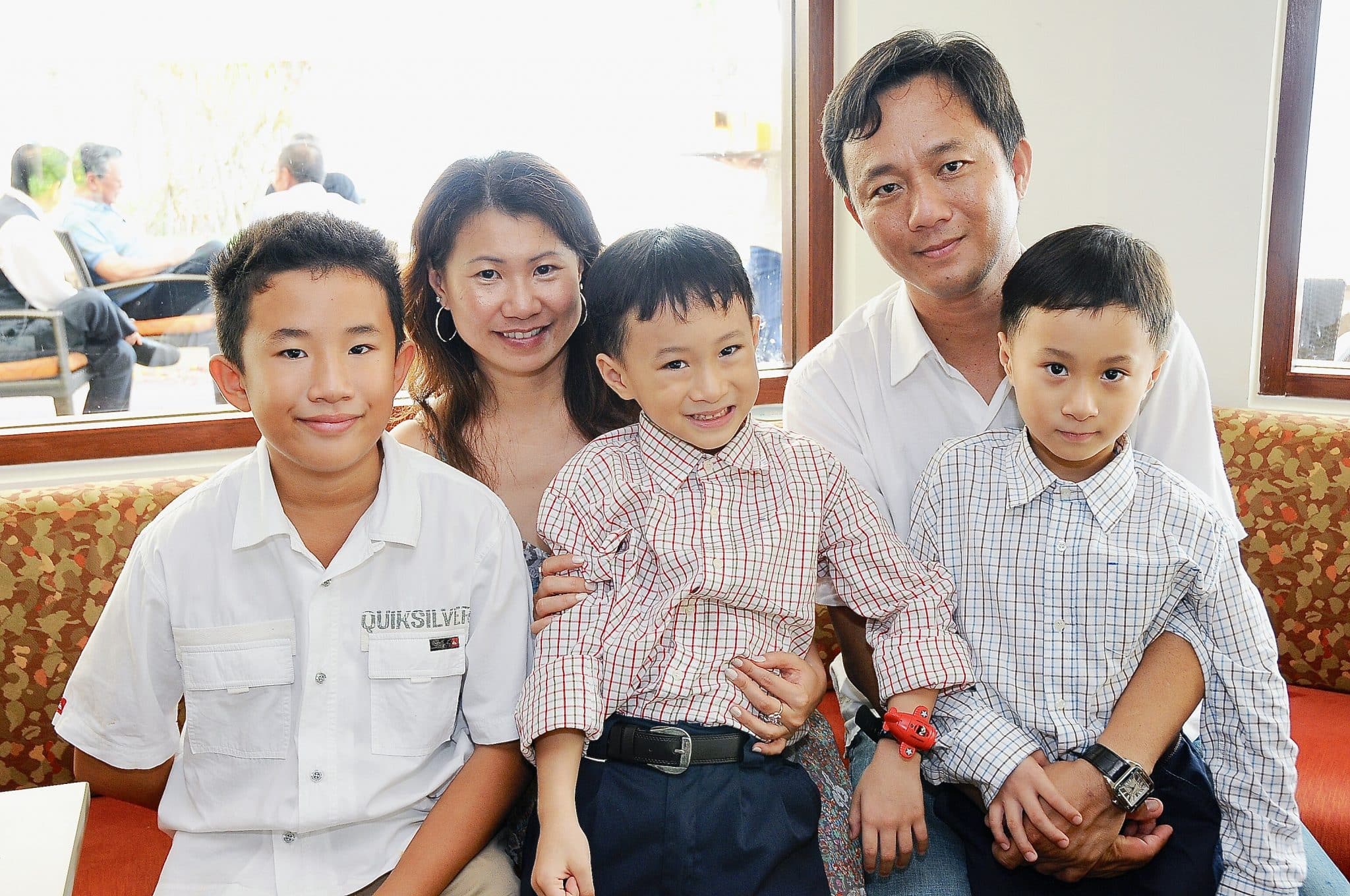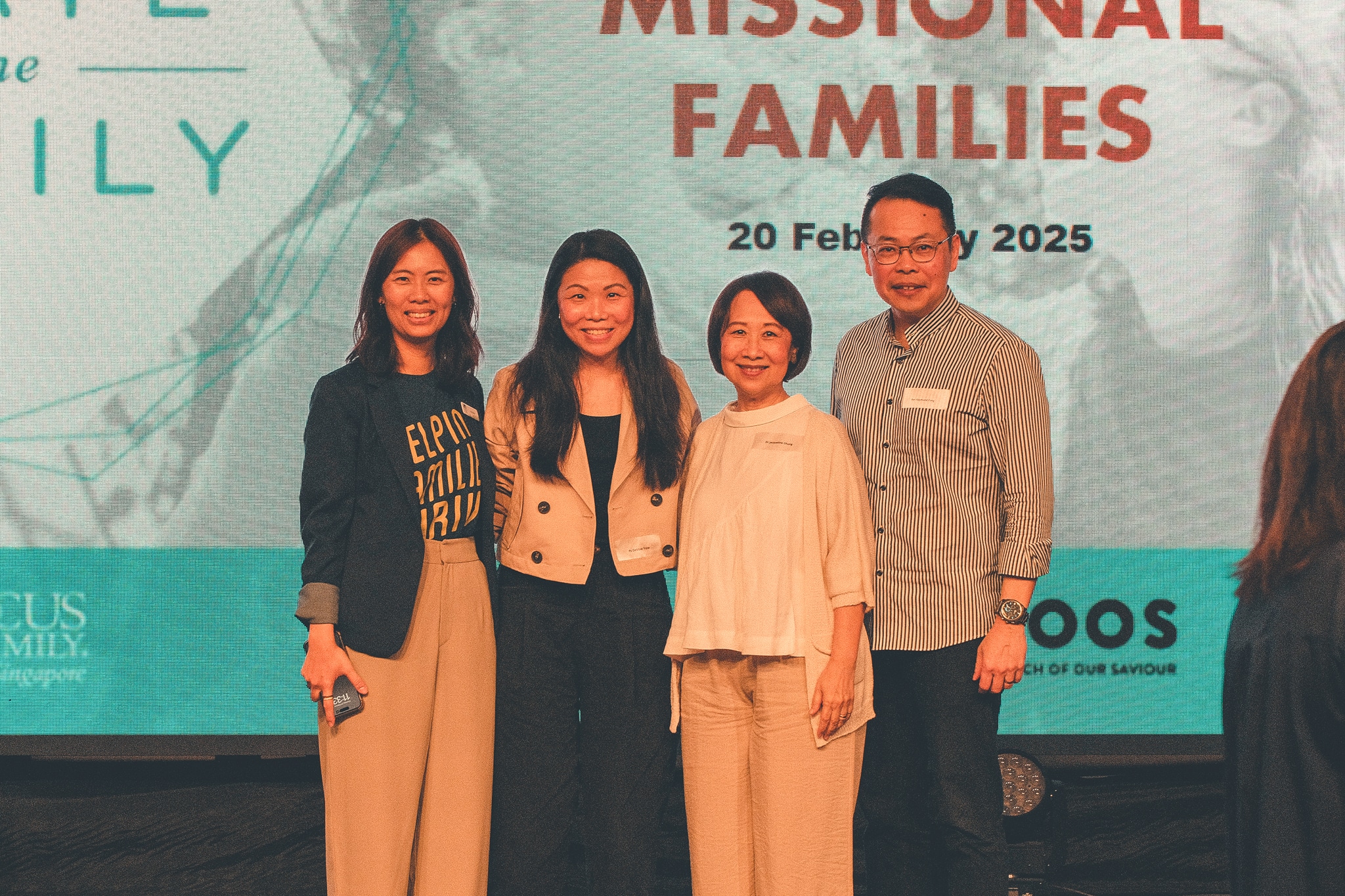“It’s important to know we’re not the children’s saviours”: 6 tips for couples intending to be foster parents
by Christine Leow // November 8, 2024, 11:30 am

The Toos have been foster parents for 10 years. Joyce (left) had always had a heart for vulnerable children, while Pastor Too Teh Hsin (right) was convicted by God to foster through the parable of The Good Samaritan. All photos courtesy of Ps Too Teh Hsin.
In the 10 years that they have been foster parents, Pastor Too Teh Hsin and his wife Joyce, who have fostered seven children, have seen it all.
They have given respite care to a baby – an eight-month-old boy.
They have sheltered siblings – a set of two who lived with them for nearly five months.
They have had one who were with them for mere months, and another who has been with them for a decade. They have since adopted the 11-year-old.

The Toos have fostered seven children. They currently have three foster children living with them and one whom they recently adopted.
They have cared for children with special needs, including global developmental delay, ADHD and dyslexia, and seen almost every manner of temper tantrums and meltdowns. They have also dealt with lies, runaways and police visits.
“So many of these children can thrive (when given the opportunity).”
“It’s tough. We don’t have success stories all the time,” said Joyce, 55.
“But if God has given me this task, how I treat this child in the family is a reflection of how I love God. As a ministry, it is really a big responsibility. If I am able to love God, then I am able to love the children, too.”
Of course, they have seen positive turnarounds as well.
One child came to them unable to read English and is now in a top junior college. Others have learnt from them how to better cope with emotional breakdowns.
“My eyes have been opened to the fact that so many of these children can thrive (when given the opportunity),” said Joyce.
In an interview with Salt&Light, the Toos share six lessons they have learnt about being foster parents.
1. Get to know as much of the child’s background as possible
It may not always be easy to get such information because the child may be too young or not forthcoming. But having background information on him or her can be helpful.
One of their foster children used to love switching off the bathroom light when the other children were using the bathroom. This would cause one of their other foster children to “freak out”.
The Toos later discovered that the strong reaction from the second child was a result of a past traumatic experience of being locked up in a dark room.
“If we had known earlier, we wouldn’t have let it happen even accidentally or for fun,” said Joyce.
2. Do not be prejudiced by the child’s past
Ps Too and Joyce were once told that one of their foster children often told lies.
One day, they gave him money to buy his school uniform. The boy used the money to buy something else instead and lied about it.
Their first thought was: “He is doing it again.”
“He never needed to lie to be safe again because we became his safe place.”
Instead of merely reprimanding him, they sat him down for a chat. “I wanted to reach his heart,” said Joyce.
“At first, he rolled his eyes thinking it was another one of those lectures. But we went the other way. We told him how sad and hurt we were by his behaviour because we love him and know he is a good boy.
“We told him we were rooting for him and no matter how naughty he was, we still loved him. Hearing that somehow broke his countenance.
“He said, ‘Sorry, I will never do it again.’ And he never did it again. He never needed to lie to be safe again because we became his safe place. That was a big lesson for me.”
3. Give the child time to adapt
Joyce believes that it is important for foster parents to put aside their own expectations on how a foster child should behave, react or adapt to their new environment in the home.
“The child didn’t wake up thinking: ‘How shall I irritate you today?’”
“They can’t fit into your family immediately because they have a lot of baggage,” she said.
For example, switching off the lights when they leave a room may seem like a simple habit. However, it may be difficult for the child to comply because they are not used to it.
“You just have to let it go. Choose your battles. My husband always reminds me when I get upset that the child didn’t wake up thinking: ‘How shall I irritate you today?’”
4. Focus on building relationships
While the Toos aim to teach their foster children how to abide by rules, they focus on building a relationship with them first.
For example, after finding out that one of their foster children likes the Japanese anime One Piece, they researched more on the series and asked the boy plenty of questions about it.
That became a point for them to connect with him.
5. Examine your reason for being a foster parent
Said Ps Too: “The reason has to be for God, to love the child for the child’s sake.
“We are all broken people but we have a faithful God.”
“If the reason is so there is one more child to fill your own heart or to give your child a playmate, then if this child is not nice to your child, you will be very angry.”
Joyce added: “It is also very important to know that we are not the children’s saviours.”
Having that perspective made them remember that only God can change their foster children. Their job is to love them and show them God’s love and grace.
“We are all broken people, but we have a faithful God,” said Ps Too.
6. Love with God’s love
Ps Too has always had a reputation for being a patient man.
“I am so much more sinful than I realised. Yet God loves us.”
“I was quite proud of that. But when we have to deal with traumatised children, when our parenting is not on the same page, I get angry with them, I get angry with my wife. Then, I wonder: ‘Where did that come from?’
“It made be realise I am so much more sinful than I realised. Yet God loves us. His love is amazing.”
This realisation has helped Ps Too to extend more grace to his foster children.
Have a heart for vulnerable children and families?
To commemorate Orphan Sunday in Singapore (November 10, 2024), World Without Orphans – Southeast Asia and Home for Good, Singapore have come together with various partners to organise a series of events.
These include:
- A 13-day devotional (November 1–13)
- Orphan Sunday services (November 10)
- A Worship & Prayer Night (November 11)
- Roundtables for churches and organisations (November 12-13)
To find out how you can join, tap the links above for more details.
World Without Orphans is a global movement whose mission is to call and equip national leaders to collaborate in solving their own country’s orphaned and vulnerable children’s crisis.
Home for Good, Singapore is a registered charity that supports a network of foster parents, adoptive parents and volunteers who are passionate about helping vulnerable children, youth and families from all backgrounds.
RELATED STORIES:
Choosing to love: What to know if you’re thinking of adopting or fostering
Children belong in families. Will you open your homes to foster children in need?
We are an independent, non-profit organisation that relies on the generosity of our readers, such as yourself, to continue serving the kingdom. Every dollar donated goes directly back into our editorial coverage.
Would you consider partnering with us in our kingdom work by supporting us financially, either as a one-off donation, or a recurring pledge?
Support Salt&Light


